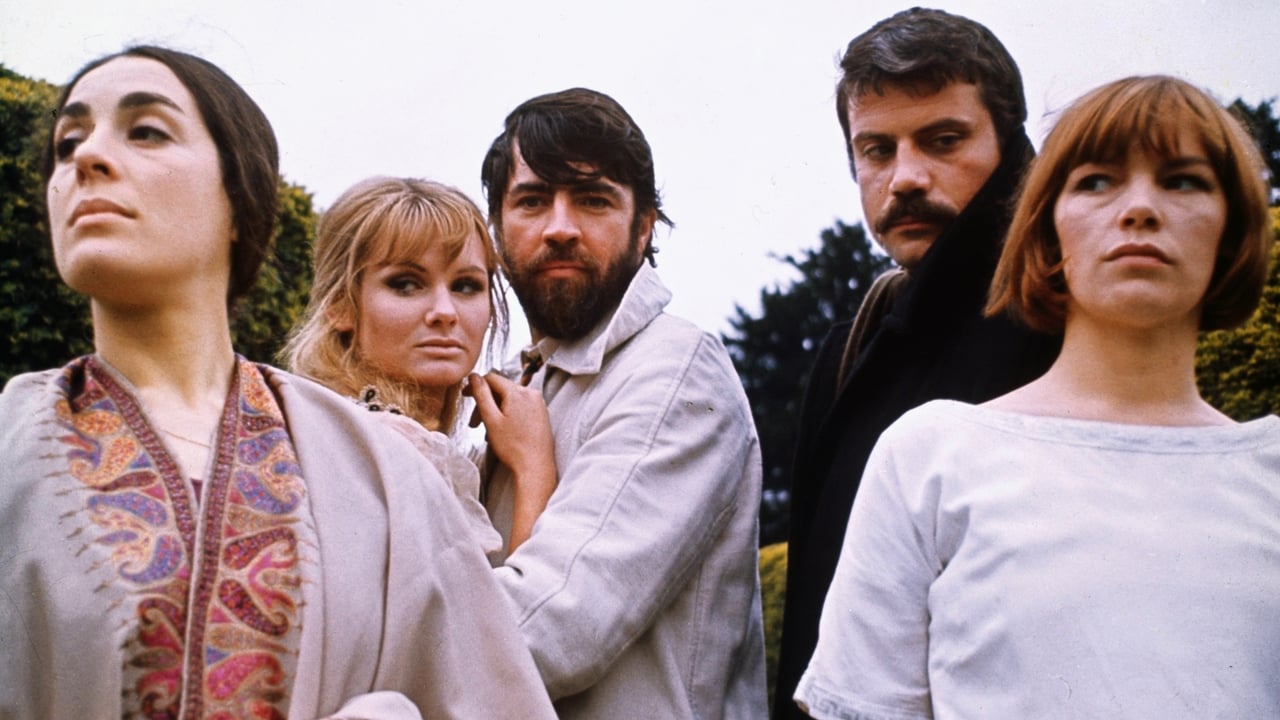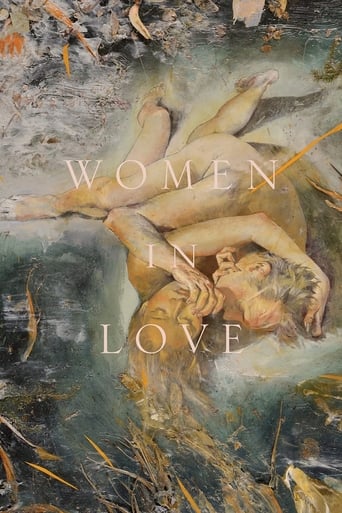



Lack of good storyline.
It's complicated... I really like the directing, acting and writing but, there are issues with the way it's shot that I just can't deny. As much as I love the storytelling and the fantastic performance but, there are also certain scenes that didn't need to exist.
View MoreThe tone of this movie is interesting -- the stakes are both dramatic and high, but it's balanced with a lot of fun, tongue and cheek dialogue.
View MoreA clunky actioner with a handful of cool moments.
I've always been attracted to this movie. It came out where young people were exploring more freedom in sexuality and sexual expression. A particularly memorable scene involves Alan Bates describing the correct way to eat a fig. There is never been a more sensual description of a vagina in bloom than Bate's fig description, at least on film. Ken Russell does a wonderful job in bringing this D.H. Lawrence to life. The movie beautifully, and repeatedly, contrasts the sensuality to life with the brutality of the industrial revolution in England immediately after WWI when two sisters, Gudrun Brangwen (Glenda Jackson) and Ursula Brangwen (Jennie Linden) find two very different types of men (Alan Bates and Oliver Reed) to love. Conventionality also clashes with idealism in this movie too. This is made clear when the two couples decide to vacation in Zermatt. For me, one of the most memorable visual shots of the movie occurs when the two couples first arrive in Zermatt, and Glenda Jackson holds her arms in the air to greet the Matterhorn (Mont Cervin) as if her arms were the labia of a vagina, opening widely to fully embrace an erect penis. In this shot, this is nature representing the joy of human sensuality.
View MoreDH Lawrence's novel Women in Love is possibly the most sensual work of literature ever. It drips with color. And gushes with often unsettling emotion.Ken Russell was born to film this book. His adaptation condenses a lot, as it must. But it captures the sensory, hallucinatory feeling of the book, in a way that I think will never be surpassed.The casting is equally fortuitous. Glenda Jackson and Oliver Reed are the perfect match, the perfect flamboyant stars to play Gerald Crich and Gudrun Brangwen: two people whose passion can only annihilate itself. The ostensible leads, Alan Bates and Jennie Linden, take a back seat, but are equally appropriate to their roles: the man who must understand, and the woman who is content to simply be part of the process of life. (A most unfair summary, of course.)Like the novel, the film isn't entirely pleasant. Both expose too many things we'd rather not dwell upon. But both are masterpieces in their respective media. They'll take you places, emotionally, that you've either never been aware of, or have been vaguely trying to avoid. It's a worthwhile journey, but you will not be the same afterward.
View MoreIn the Midlands town of Beldover, chilly neurotic artist Gudrun (Jackson) and her schoolteacher sister Ursula (Linden) fall in love with lifelong pals, wealthy coalminer owner Gerald (Reed) and school inspector Rupert (Bates). During a holiday in Switzerland, Gudrun falls for a bisexual German sculptor, Gerald resigns himself to a snowy grave and Rupert and Ursula return to Britain."Women In Love was easier for them," director Ken Russell once remarked of his critics. "It was literal and had just the right amount of violence and erotic things in it. But I don't think it was as good as the others." Many would disagree. Even Alexander Walker, who'd later be pummelled by the business end of Russell's rolled-up newspaper live on television for daring to call The Devils "monstrously indecent", praised the film as "exceptional".A true and honest artist, Russell has always steered a singularly rocky path between, as Walker put it, "impassioned iconoclasm" and "boorish megalomania", but when he gets it right, few can equal him for pure cinematic poetry. There are moments of astonishing beauty here: Ursula's sensual rendition of 'I'm Forever Blowing Bubbles' as Gudrun reaches for a tree branch; Ursula's nude scene with Rupert, the lovers gracefully circling in a field; the pathetic discovery of Gerald's frozen form, broken beyond belief; leastwise, that nude male wrestling match by firelight - a near-cinematic first, incidentally.The performances, too, are second to none, with (a then pregnant) Jackson deservedly scooping a Best Actress Oscar for her part as the manipulative Gudren.
View MoreWomen In Love is one of the strangest movies I've seen in a while, and I've been watching lots of surrealist masterpieces lately. I guess in these movies the strangeness ends up making sense. Whereas in Ken Russell's movie we have stark realism constantly marred by misplaced corny scenes.For instance, and no doubt owing to the influence of the free love period this movie was made in, we have many scenes of outdoor nakedness, with people rolling around in the grass and making love. It seems Larry Kramer read the novel and only registered the dirty bits (of which there aren't many really). But this is based on a D. H. Lawrence novel, even if it's not the most explicit one; but it doesn't matter: people expect lots of sex from Lawrence and Russell and Kramer were only too happy to oblige.Left out were most of the philosophical aspects of the novel, but fortunately not its homosexual subtext, one of the most interesting things about the novel. Left are the bohemian aspects of the novel, left are the tense relationships between the Brangwen sister and father; left is the relationship between Gerald Crich and his dying father. The movie is a streamlined adaptation of a five-hundred-page, hardly-visual novel.No doubt the story sidetracked in favor of pretty pictures. At times one feels Russell is more interested in this as a period piece than as a narrative. With the help of Billy Williams, he shoots coal mines and streets in all their squalor, and nature and bodies in all their beauty. It's great to look at, not necessarily good to watch.The acting is top notch, and I'm shocked only Glenda Jackson got an Oscar for it. Alan Bates, Oliver Reed (his greatest performance ever?) and Jennie Linden are all amazing in their incoherent but heartfelt roles.All in all it's a movie worth watching.
View More